One comment from Mandela opened doors for SA cricket
by Mark Smit
2013-12-06 08:23:46.0
IT WAS a ludicrous situation. Kepler Wessels’ Proteas needed to get 21 runs off one ball in the semifinal of the 1992 World Cup.
A picture of Brian McMillan standing disconsolately below the scoreboard showing the impossible requirement went around the world. South Africa lost the game.
Yet it was a situation the country’s all-too-recently isolated cricket team would never have been in had Nelson Mandela not uttered one crucial comment.
"There was no talk yet of us playing international cricket or in the World Cup. We were just thrilled to have been accepted back into the international fold," recalls Ali Bacher, then MD of the United Cricket Board of South Africa (now Cricket SA).
It all came from a meeting Bacher had with Mandela and Clive Lloyd, the former West Indian captain, who was in the country to promote cricket development programmes.
The day they met Mandela at then ANC headquarters Shell House, they were not the only ones wanting to see him.
"When we arrived there was a huge crowd of international journalists waiting to interview him," Bacher says.
They held their meeting and then went out to meet the waiting media. One of the journalists asked Mandela if South Africa should play in the next World Cup.
"He replied, ‘Of course they should go.’ It was all over the world’s press the next day," says Bacher.
Mandela’s words created a stir. One person who heard the comment was Sri Lanka Cricket president Tyronne Fernando. He phoned International Cricket Council (ICC) chairman Colin Cowdrey and asked for an urgent meeting.
"We went to Sharjah (in the United Arab Emirates) and had a 20-minute meeting during which the ICC members were asked if they wanted us included. The West Indies abstained but all the rest said yes, and we were in. One word from Madiba and it was a done deal."
Then Cricket SA CEO Gerald Majola remembers the huge role Madiba played in cricket’s return.
"It was his endorsement of the unity process and the formation of the United Cricket Board that showed the world South Africa was now acceptable following the apartheid years ...
"It should be remembered that the UCB was the first institution to be accepted by a world body – well before a formal democracy was formed – and it was Madiba’s considerable influence that persuaded ICC members and their governments such as India, Pakistan, and the West Indies to agree to the UCB being admitted as a member of the ICC. Madiba also made it a point of being publicly present when India toured South Africa in the 1992-93 season in what became the famous ‘Friendship Tour’.
"In fact, he turned up at the Indian warm-up match at the Oppenheimer Oval in Midrand on his way to Pretoria to register the ANC as a party to contest the elections."
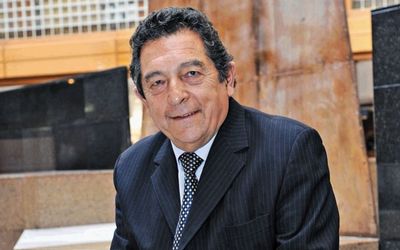
Ali Bacher. Picture: FINANCIAL MAIL
IT WAS a ludicrous situation. Kepler Wessels’ Proteas needed to get 21 runs off one ball in the semifinal of the 1992 World Cup.
A picture of Brian McMillan standing disconsolately below the scoreboard showing the impossible requirement went around the world. South Africa lost the game.
Yet it was a situation the country’s all-too-recently isolated cricket team would never have been in had Nelson Mandela not uttered one crucial comment.
"There was no talk yet of us playing international cricket or in the World Cup. We were just thrilled to have been accepted back into the international fold," recalls Ali Bacher, then MD of the United Cricket Board of South Africa (now Cricket SA).
It all came from a meeting Bacher had with Mandela and Clive Lloyd, the former West Indian captain, who was in the country to promote cricket development programmes.
The day they met Mandela at then ANC headquarters Shell House, they were not the only ones wanting to see him.
"When we arrived there was a huge crowd of international journalists waiting to interview him," Bacher says.
They held their meeting and then went out to meet the waiting media. One of the journalists asked Mandela if South Africa should play in the next World Cup.
"He replied, ‘Of course they should go.’ It was all over the world’s press the next day," says Bacher.
Mandela’s words created a stir. One person who heard the comment was Sri Lanka Cricket president Tyronne Fernando. He phoned International Cricket Council (ICC) chairman Colin Cowdrey and asked for an urgent meeting.
"We went to Sharjah (in the United Arab Emirates) and had a 20-minute meeting during which the ICC members were asked if they wanted us included. The West Indies abstained but all the rest said yes, and we were in. One word from Madiba and it was a done deal."
Then Cricket SA CEO Gerald Majola remembers the huge role Madiba played in cricket’s return.
"It was his endorsement of the unity process and the formation of the United Cricket Board that showed the world South Africa was now acceptable following the apartheid years ...
"It should be remembered that the UCB was the first institution to be accepted by a world body – well before a formal democracy was formed – and it was Madiba’s considerable influence that persuaded ICC members and their governments such as India, Pakistan, and the West Indies to agree to the UCB being admitted as a member of the ICC. Madiba also made it a point of being publicly present when India toured South Africa in the 1992-93 season in what became the famous ‘Friendship Tour’.
"In fact, he turned up at the Indian warm-up match at the Oppenheimer Oval in Midrand on his way to Pretoria to register the ANC as a party to contest the elections."



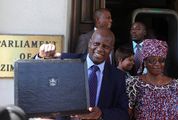
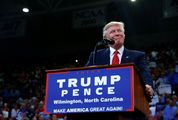
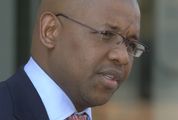




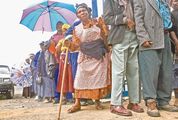

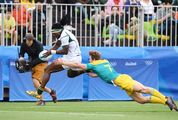
 News and views on the death, and life, of former president Nelson Mandela
News and views on the death, and life, of former president Nelson Mandela





